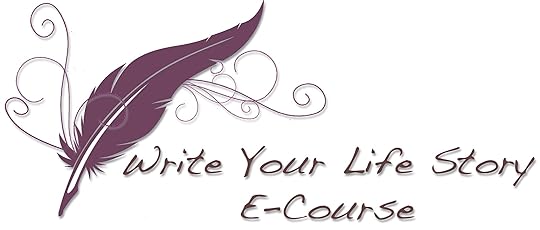Cate Russell-Cole's Blog, page 54
August 19, 2012
The Critical Value of our Stories
I am still offline sick until we get my meds right. Thank you everyone for your wishes. I really appreciate the support. In the meantime, please enjoy and pass on this gem. Cate
“It’s the agents of our imagination who really shape who we are.” Chris Abani
This gentleman is amazing. Please take the time to watch the video. It will have you placing greater value on the stories you write, whether fictional or autobiographical.
Chris’ bio on TED Talks: “Chris Abani’s first novel, published when he was 16, was Masters of the Board, a political thriller about a foiled Nigerian coup. The story was convincing enough that the Nigerian government threw him in jail for inciting a coincidentally timed real-life coup. Imprisoned and tortured twice more, he channeled the experience into searing poetry.
 Abani’s best-selling 2004 novel GraceLand is a searing and funny tale of a young Nigerian boy, an Elvis impersonator who moves through the wide, wild world of Lagos, slipping between pop and traditional cultures, art and crime. It’s a perennial book-club pick, a story that brings the postcolonial African experience to vivid life.
Abani’s best-selling 2004 novel GraceLand is a searing and funny tale of a young Nigerian boy, an Elvis impersonator who moves through the wide, wild world of Lagos, slipping between pop and traditional cultures, art and crime. It’s a perennial book-club pick, a story that brings the postcolonial African experience to vivid life.
Now based in Los Angeles, Abani published The Virgin of Flames in 2007. He is also a publisher, running the poetry imprint Black Goat Press.”
If you want to know more about how to write your story, you can buy a copy of the full Write Your Life Story E-Course from my web site. It will give you a structure for what you want to write; many ideas to get you started and enthusiastic; and an understanding of new techniques to bring back memories and write a vibrant story.
By the end of the course you will have:
• Constructed a time line of your life’s events as a starting point for writing;
• Chosen a title;
• Planned what resources you need such as cost and research;
• Used memory trigger techniques and mind mapping;
• Decided which parts of your life you do and don’t want to write about;
• Knowledge about which biography writing pitfalls to avoid;
• Used basic fiction writing techniques to add colour and depth to your work;
• Have a list of resources for inspiration and further information;
• Organised your work so nothing is lost.
If you would like a sample of what the E-course is like, please visit this link: http://www.virtual-desk.com.au/WYLS%20eCourse%20Week%201.pdf ”Write Your Life Story ” is only available from Cate. For more information on the course and the form to order both versions, please visit this link.

You are also most welcome to become a part of the Write Your Life Story Facebook Community. It’s aim is to inspire you to write and improve as a writer, by regularly sharing resources and helpful ‘how-to’ posts on Facebook. The page address is: http://www.facebook.com/pages/Write-Your-Life-Story/173393852705651?sk=app_190322544333196
Filed under: Creativity, Food For Thought, Inspiration, Writer's Recovery Community Post, Writing Tagged: author, biography, Chris Abani, culture, discovery, family history, growth, identity, influences, learning, life story, Nigeria, poet, psychology, shaping, stories, TED Talks, value, writer

August 13, 2012
One of those weeks…
Hi everyone, I have been having a great deal of trouble with migraine pain over the last few weeks and am at the point where I am way behind and need to stop work until I heal and can get off the heavy painkillers. My very sincere apologies to the ROW80 bloggers who I am supporting. I am two check-ins behind and just can’t handle the computer long enough to do anything but the occasional 2 minute retweet. I promise I will catch up. You are in my thoughts, I just can’t function over the top of severe pain and narcotics.
I will be back very soon, I promise. Thank you for your patience.
Cate
Filed under: Writing

August 9, 2012
A Character’s Journey to Peace: The Monomyth
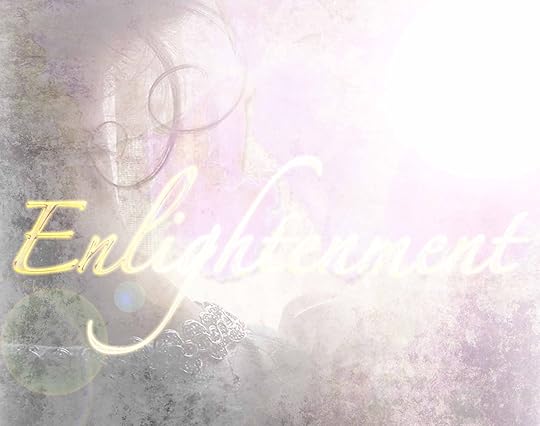 Enlightenment: the “full comprehension of a situation;” a spiritual revelation or deep insight into the meaning and purpose of all things, communication with or understanding of the mind of God, profound spiritual understanding or a fundamentally changed consciousness… Source here.
Enlightenment: the “full comprehension of a situation;” a spiritual revelation or deep insight into the meaning and purpose of all things, communication with or understanding of the mind of God, profound spiritual understanding or a fundamentally changed consciousness… Source here.
In many stories, there is a lesson to be learnt, a challenge to be overcome and ultimately, enlightenment to be gained. When that happens, things will never be the same for that character again. It is the crowning glory of life, perhaps even guaranteeing you a cushy afterlife.
As it is the grand prize, enlightenment is naturally, a difficult thing to achieve. It takes luck, hard work, guidance and the patience of a saint. It is like trying to pin down a dust mote dancing in the light, or capture a tornado in a jam jar. What does it take to portray it in your fiction writing? Is it a concept which is way too big, too spiritual or too complex and time consuming to address?
If you have read the plot outline of the archetypal heroes journey (resources below), there is a stage where our hero (or main character), has to face their own fears. Sometimes that is their own mortality. This is where enlightenment can be discovered or destroyed. This point in time is the testing ground of strength: they can run; fail and cower; retry then win; or conquer outright with a strength they never knew they had. (Cue dramatic cinema music here.) This is a stage in the journey sometimes called “The Ordeal.” It is about transformation, rebirth and growth. The kind of turn-around enlightenment enables, cannot happen without ordeal. It is a major focal point which then gives the freedom to pursue a new way of thinking, behaving and being. They believe. They can. The struggle was worth it. There is inward peace. Good things can come from bad.
Luke Skywalker’s journey in Star Wars: A New Hope, is a frequently quoted example of this rite of passage. George Lucas followed the formula of the monomyth deliberately. He drew on archetypes for all his characters and worked the plot out to convey age-old symbols to a new audience. There are moments of futility, danger, hope and despair. It is very dramatic. However, in working with people in real life over the years, I have found that the path to maturity and freedom is often made up of many far less dramatic, smaller stages, which I call mini enlightenments. They are checkered by failures, disappointments and face-palm moments where you could have done better, but somehow, just missed the boat. But that’s how you get to success. You fall on your face repeatedly, then find peace and a way of getting through the day that is easier, simpler and more rewarding.

Image Copyright Lucasfilm Ltd.
I would break down the process of enlightenment even further. We tend to see it as a singular thing: an event hard won. From my experience with spirituality, there doesn’t seem to be one big enlightenment, one “eureka” moment which covers everything. It is a series of revelations that build you to be stronger and wiser, the further along your life’s journey you go.
We don’t all dual Dark Lords of the Sith, but we do dual fear and doubt. We don’t rescue princesses, but you may be the essential listening ear for a friend in need. If you have never read the heroes journey, I’d like to encourage you to read it, then bring it down to earth in simpler terms. If you are writing epic fantasy, it is most probably perfect as it is and no simplification is required. But are humans really like that?
Can one event or quest really change everything? You decide…
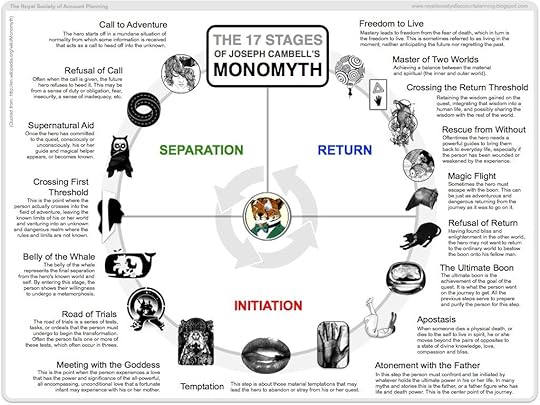
Original Source Embedded in Graphic
About the Heroes Journey
In 1949 the writer, Joseph Campell, described man’s path to enlightenment in his book “The Hero with a Thousand Faces.” (Available through Amazon also.) He studied the great works of fiction and found a pattern which has been written into many timeless stories from all over the world. It involves distinct character roles and growth stages, starting from weakness and advancing towards being an transformed conquerer. The term used to describe this process is monomyth. I have seen a number of variations of the journey. For great information, please visit this site: http://www.thewritersjourney.com/hero’s_journey.htm
This article is Copyright Cate Russell-Cole 2012. It may not be reproduced in any form, without my prior written permission.
Filed under: Fiction and Characterisation, Food For Thought, Indie Publishing, Inspiration, Writing Tagged: author, books, characterisation, conflict, discovery, failure, fear, fiction, goals, growth, hero, heroes journey, inspiration, Joseph Campell, journey, learning, life story, monomyth, motivation, passion, plot, success, writer, writing

August 6, 2012
Fat Free, Guilt Free Blogging Goals
 I’ve just started my first term as a ROW80 Sponsor and I am really enjoying watching people move forward in their goals and making new friends. One thing we all have in common with writing, is life sure does get in the way! It’s unavoidable and you just have to go with it. Even taking a day off to have fun can be necessary in our creative lives. The trick is, to do it without the guilt… and I am reading an awful lot of guilt!
I’ve just started my first term as a ROW80 Sponsor and I am really enjoying watching people move forward in their goals and making new friends. One thing we all have in common with writing, is life sure does get in the way! It’s unavoidable and you just have to go with it. Even taking a day off to have fun can be necessary in our creative lives. The trick is, to do it without the guilt… and I am reading an awful lot of guilt!
ROW80 shares the same blogging philosophy I have. “We are all different and we all have different demands on our time. Why should we all have the same goal? The simple answer is that we shouldn’t. If you want to be a writer, then you have to be able to roll with the punches and adapt to your changing circumstances. If that means changing your goals when your life blows up, so be it. ROW80 is the challenge that champions the marriage of writing and real life.”
I like the emphasis on the goals being achievable. That is the secret ingredient to any goal. There must be flexibility and a sense of reality. However, despite how Kait Nolan has emphasised the easy-going nature of the challenge, I keep seeing writers listing masses of goals: more than 80 days worth! It leads me to question why we are so insistent on deliberately placing ourselves under high-achievement related stress?
The happiest bloggers seem to be the ones who have three goals at the most. These goals aren’t back-breaking and they have a balanced attitude which accepts that some days they may fail; some days they may come close; some days they will achieve above and beyond and that is all good. The strategy which brings a cheer from me, is seeing writers list the rewards they will give themselves on achieving their goals. A small treat, some ‘me’ time, a fun activity which refreshes and pulls them away from their desk. It’s a great idea. I love it!
At the start of this year I wrote a post where I said that reaching your goals and dreams by making small changes, seems to work the best for most people. Trying to revolutionise our entire lives in one effort leaves us tired and discouraged. Small changes are the ones that stick. They are less likely to fizzle into failures and regrets. I feel like I need to say that again, with a great deal of feeling and much more emphasis.
Go easy and be kind to yourself!
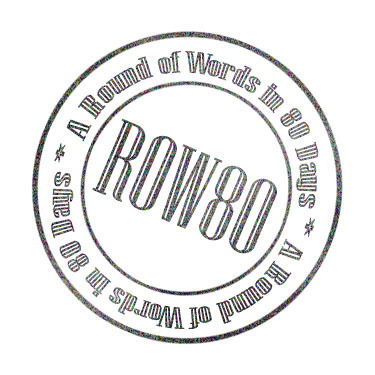 Work, family, finances, holidays, sickness and the occasional crisis will always be there to keep you away from putting words on paper. Your success as a writer depends as much on how you deal with that, as it does on how much output you have. As a writer there is a massive laundry list of demands you are supposed to meet to succeed, plus I know how easy it is to get enthusiastically carried away with everything you want to achieve. However, please do take the time to step back, reassess your direction and see if you need to cut back on your goals to maximise your creative energy. It is not a sign of failure to do that, it’s a sign of wisdom.
Work, family, finances, holidays, sickness and the occasional crisis will always be there to keep you away from putting words on paper. Your success as a writer depends as much on how you deal with that, as it does on how much output you have. As a writer there is a massive laundry list of demands you are supposed to meet to succeed, plus I know how easy it is to get enthusiastically carried away with everything you want to achieve. However, please do take the time to step back, reassess your direction and see if you need to cut back on your goals to maximise your creative energy. It is not a sign of failure to do that, it’s a sign of wisdom.
The burger photo in this post is paid for and licenced to me. It is Copywritten . You may not save it or use it for your own purposes. You can purchase it from iStockphoto.com
This article is Copyright Cate Russell-Cole 2012. It may not be reproduced in any form, without my prior written permission. All rights reserved.
Filed under: Blogging, Creativity, Inspiration, Writer's Recovery Community Post, Writing Tagged: behaviour, blogging, creativity, failure, goals, growth, inspiration, motivation, problem solving, ROW80, stress management, success, support, writer, writing

July 30, 2012
Grabbing a Willing Audience: Ingenuity in Action!
Throughout our modern Internet history, there have been a few initiatives which have really stood out to me as audacious achievers. One of these is most definitely Klout.
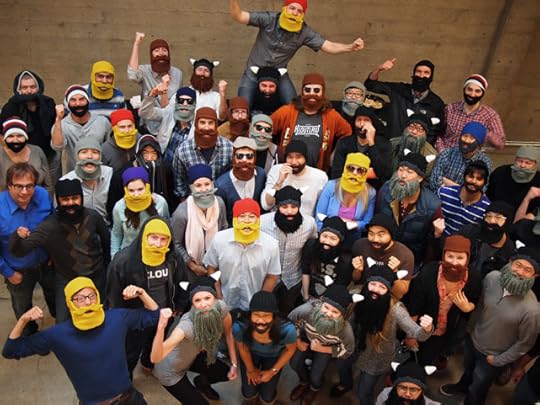
Klout Employees Being “Beardheads.” It looks like a fun, successful place to work.
I stayed away from Klout for a long time as I didn’t see the value in it, plus frankly, the last thing I needed was another social media commitment. I’m trying to run a business, a home and a tricky health situation. I put priority on knowing when to draw the line.
Then one day, someone very kindly gave me some Klout. I was touched, I thought it was a lovely gesture. However, knowing I had never signed up for Klout, I also considered that to be downright suspicious. The Internet is not always a safe place to be… In the interests of knowing my potential enemy, I signed up. It seemed OK. I linked up my networks, got a score and it all seemed kind of nice. I started giving Klout to people and that gave me a warm, fuzzy feeling of giving back. It was goodwill in digital form.
Harmless enough, or as they say on the Cheezburger network, “seems legit.” But it worries me. Klout is a clever marketing technique. It is most certainly not a self-sacrificing users service. I am seeing far, far too many writers measuring their self-esteem on their Klout score and worrying about it. After all, it’s the “Standard for Influence.” That is disturbing. We’ve walked straight into their business plan and people are being negatively affected.
Writers need to be enjoying their creative journey; not bemoaning their perceived low score, or worrying about how to boost it higher. Considering it only measures half the networks I am attached to and doesn’t accurately reflect all activity on those, it’s pretty worthless to me anyway. I still occasionally log in and give some Klout to show my goodwill to people. That’s about it folks! I’ve dropped six points as I dared to work less hours and have some annual leave. I couldn’t care less. It doesn’t really matter.
Interestingly, the brand name Klout comes from the word “clout, noun: authoritative power, authority, controlling power, directing power, dominancy, dominion, eminence, force, hegemony, importance, influentiality, leverage, mastership, notability, power, power of impelling, predominancy, prestige, prominence, puissance, significance, weight.” (Source: http://legal-dictionary.thefreedictionary.com/clout)
Whoa! Now pulling in that word as your business name was a great move. Talk about building a strong image. That’s a master stroke in business and not easy to do.
May I challenge you to think about this a little further?

Klout’s Current Investors, July 30 2012
Don’t forget here that Klout came looking for me and registered details about me, without my consent. (See Red Flags below for their policy statements.) When you deal with mail harvesting robots, or unsolicited marketing on social media, you get annoyed and look for an off option.
So why do we consider Klout to be benevolent? Because it makes us feel good when we see words like “you influence” and our score rises. As friends contribute, it appears to be a sweetheart service. However, I can click on any of the people I influence, select anyone they influence (whether I know them or not), and give them Klout then brag about it on Twitter – which may also increase my Twitter following as I was nice to someone and they just “discovered me.” Awwww. How genuinely sweet is that? It’s not. It’s manipulation to get attention.
I think it’s great to give people positive feedback, especially through retweets, blog comments and shares. I have a large problem with doing it through a commercial service with investors, that gives you bragging rights and takes any of your information off the net without your permission. I don’t care if they call it public information or not, I didn’t give them a right to it and that, **to me personally, ranks the same as spam.
I have no issues with online enterprises making money to cover costs, but when it’s a business affecting people’s self worth (regardless of the fact it is our individual responsibility not to allow anyone to affect us), then I get somewhat riled up.
Don’t let it run your self esteem!

Klout Perks Could Be Considered Ads. It’s a great looking car, I wouldn’t mind one. If I was looking for a car, I’d check it out from this picture.
Red Flags
“Klout collects public data in order to accurately measure influence. Users can control the data available to Klout by changing the privacy settings on individual networks. Klout will never access your private data unless we have explicit permission.”
All my privacy settings are already set to keep intruders out, so how does this work? As far as I am concerned, they should never have known about me, let alone scored me. I came in with a score of 41 and I had never used their service or given any permissions. They had to collect that without my consent somehow.
“Allow Klout to see which pages you like on Facebook. This will allow Klout to offer you better and more relevant perks, communications, and experiences!” I have a high distinction in marketing. I have worked with small businesses on marketing strategies since the early nineties. To attract investors and get people in the door, this is a really good move. These guys are smart! I meant it when I used the word ingenuity. They have it.
Just in case I haven’t convinced you yet that you’re not a money making opportunity: the perk providers undoubtably pay and in the terms and conditions for all of us: “To the extent the Service or any portion thereof is made available for any fee, you may be required to select a payment plan and provide Klout information regarding your credit card or other payment instrument. You represent and warrant to Klout that such information is true and that you are authorized to use the payment instrument. We reserve the right to change Klout’s prices at any time.”

**This post is a personal opinion post which probably sounds self-righteous and downright snarky. It is solely my own, taken from my own personal experience, which I have the saved files to prove. It is Copyright Cate Russell-Cole 2012.
However a personal opinion is a right which United States and Australian constitutions and legalities allow me to have. It is based entirely on fact and is not libellous. All images came off their site on July 30, 2o12.
Klout is most welcome to contact me and show their lack of appreciation for my personal views, but I am not interested in perks, apologies or giving any company, any promo. I have no sponsored ads on this site. I have never been offered or accepted any form or product for comment or promotion. I work very hard on my own business, no one else’s… Of course I want you to buy my courses and books, but I won’t harvest your details without consent to do so. I try hard to ensure this stays a blog with integrity.
Filed under: Blogging, Creativity, Food For Thought, Personal Post, Writer's Recovery Community Post, Writing Tagged: author, blogging, business, failure, goals, goodwill, ingenuity, innovation, investor, Klout, marketing, motivation, privacy, self esteem, stress, success, Twitter, writer, writing

July 26, 2012
Aiming for Success: Tasks for Writers
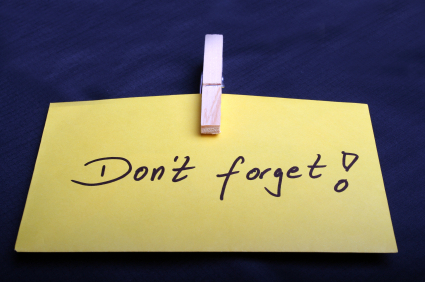 Writing is a business. While most of us adore it because of the creative aspects, if you intend to work as a professional and earn some salary from it, there are certain actions that need to be taken to keep the process moving forward.
Writing is a business. While most of us adore it because of the creative aspects, if you intend to work as a professional and earn some salary from it, there are certain actions that need to be taken to keep the process moving forward.
This is a suggested task list for writers. If you are having problems managing your writing time, or knowing what needs to be done, this may be helpful.
Daily Writer’s Tasks:
_ _ _ _ _ _ _ 1. Declutter your working area
_ _ _ _ _ _ _ 2. Read to absorb word useage and gain new ideas
_ _ _ _ _ _ _ 3. Assess what you have written, proof read. Take a break then do it again with fresh eyes.
_ _ _ _ _ _ _ 4. Write
Weekly Writer’s Tasks:
 Take an artist’s date. Read, visit somewhere inspiring, browse through a library or research a related, or new topic to give you inspiration.
Take an artist’s date. Read, visit somewhere inspiring, browse through a library or research a related, or new topic to give you inspiration.Put new ideas or snippets of information you need to remember into a notebook, scrapbook or index book so they aren’t lost. Programs such as OneNote or Circus Ponies Notebook are great for that.
Update your accounting records and pay your business related bills.
File any records, odd bits of paper or other miscellanea lying around your desk or computer.
Follow up on outstanding invoices owed to you and queries without replies.
Find a new market opportunities and locate their submission guidelines.
Network to promote your work and find new resources you can utilise. However, wisely limit your social networking time. It will rob you of the real work you need to be doing: writing.
Plan and schedule promotional activities such as give aways, guest blog spots and speaking engagements.
Give yourself a pat on the back for what you have achieved and enjoy some rest!
Weekly Review:
Plan what you need to do next week. Are there deadlines you need to adhere to?
Review the progress of your projects. Write down what needs to be done next.
Double back-up your computer files. Sync mobile devices.
Virus scan your computer.
Fix any broken or faulty equipment. Once your computer is backed up, update your software.
Ensure you’re well stocked on stationary and computer supplies, such as print cartridges, so you can work without being forced to stop.
Business Sense!
Karen Rose Smith has written a number of excellent posts on treating your writing as a business. You can find them here:

Karen Rose Smith
1. A Lasting Career, part 1: “I have been fortunate to have books published for 20 years and I hope to continue for another 20. I’m often asked–What is your secret? There is no one secret. But there are a few concepts to keep in mind if you want a long-lasting career as an author. Examine your creative urge to write. A long-lasting author must have two important qualities–passion accompanied by perseverance.” http://karenrosesmith.blogspot.com.au/2012/02/lasting-career-part-1_20.html
2. A Lasting Career: http://karenrosesmith.blogspot.com.au/2012/02/pt-2-lasting-career.html
3. Treating Writing like a Business Part 3: http://karenrosesmith.blogspot.com.au/2012/03/pt-3-lasting-career-treating-writing.html
4. Agents and other Professional Contacts: http://karenrosesmith.blogspot.com.au/2012/03/lasting-career-part-4-agents-and-other.html
5. Handling Rejection: http://karenrosesmith.blogspot.com.au/2012/03/handling-rejection-treating-writing.html
Please check her blog for more related posts. I know Karen has kept publishing them well after the point at which I stopped here. They are a gold mine! http://karenrosesmith.blogspot.com.au/ She is also on Twitter: http://twitter.com/#!/karenrosesmith and Facebook http://www.facebook.com/pages/Karen-Rose-Smith/113599841764

The photos in this post are paid for and licenced to me. They are Copywritten. You may not save them or use them for your own purposes. You can purchase them from iStockphoto.comThis article is Copyright Cate Russell-Cole 2012. All rights reserved. It may not be reproduced in any medium, in print or digital format.
Filed under: Blogging, Food For Thought, Resources, Writer's Recovery Community Post, Writing Tagged: business, get ahead, Karen Rose Smith, market, organize, schedule, success, tasks, writer, writing

July 22, 2012
En-titled to Success
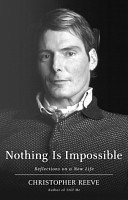 Browsing in the bookshops, I am often inspired by the titles of books. In the same way your novel or autobiography needs an attention pulling first paragraph, you also need an attention pulling title. For example, when browsing through the biography section, I hate titles which are downright dreary such as “Lucy: My Life,” or “The Biography of Bill Jones Jnr.” They make me pass by them, to more intriguing sounding reads like the ones below. I’ve left out some of the author names as a teaser. It shows you how much you want to know more, thanks to the dominant wording.
Browsing in the bookshops, I am often inspired by the titles of books. In the same way your novel or autobiography needs an attention pulling first paragraph, you also need an attention pulling title. For example, when browsing through the biography section, I hate titles which are downright dreary such as “Lucy: My Life,” or “The Biography of Bill Jones Jnr.” They make me pass by them, to more intriguing sounding reads like the ones below. I’ve left out some of the author names as a teaser. It shows you how much you want to know more, thanks to the dominant wording.
Consider some of these gems and go for an inspiring browse when you’re choosing your next book title. Also, have a look at these articles on choosing a book title from Wrytestuff.com and Judy Cullins. You can also find title ideas and check your wording isn’t already over-used by using the ISBN search engine http://www.isbnsearch.org/ This site also gives you thumbnails of book covers, will be helpful in generating ideas for your cover.
Invincible Warrior
Don’t Let Me Be Misunderstood
Dangerous Muse
Bright Lights: Dark Shadows (Abba)
Me: Mine
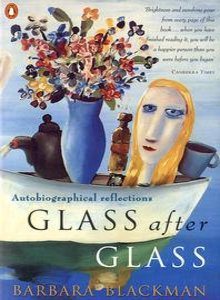 Common Ground (Malcolm Fraser)
Common Ground (Malcolm Fraser)Freedom In Exile (Dalai Lama)
Recollections From A Bleeding Heart
Larrikin and Saint
Belonging: A Memoir
To Hell and Back (Meatloaf)
A Single Step
Beneath The Underdog
Fighting Spirit (Bruce Lee)
Kiss and Make-Up (Gene Simmons)
The White Mouse
Moments Of Being
All Of Me
Romance and Reality (Mary Shelley)
Nothing Is Impossible (Christopher Reeve)
Crazy From The Heat
The Chosen One (David Owen)
Meet Me At The Top
Speaking For Myself
Wild Horses Don’t Swim
A Portrait In Sepia
This post is an excerpt from the Write Your Life Story E-Course. For more information on the course, or to order, please visit http://www.virtual-desk.com.au/trainer.html
This article is Copyright Cate Russell-Cole 2012. All rights reserved. It may not be reproduced in any medium, in print or digital format.
Filed under: Indie Publishing, Inspiration, Resources, Write Your Life Story E-Course, Writing Tagged: autobiography, biography, books, choices, communication, creativity, family history, Indie publishing, inspiration, jacket, marketing, novel, publishing, title, writer, writing

July 19, 2012
Alan Furst: Master of Historical Spy Novels
One of my aims with this blog, is to provide inspiration for other writers. The best place that comes from, is through hearing the stories of other successful writers. I also like to cover as many fiction genres as I can, so here is one for the crime, thriller and mystery loving writers.
If you’ve never come across his work, Alan Furst is the author of Dark Voyage, Blood of Victory, Kingdom of Shadows, Red Gold, Night Soldiers, Dark Star, Mission to Paris and more. He started as a copy writer for advertising agencies, then later wrote for magazines and had newspaper columns, but has always been a novelist. His web site is located at: http://www.alanfurst.net/
The first three are short videos.
Writing Spy Novels

Developing Atmosphere

First Drafts:
Controversial food for thought… each writer has their own methods.

This is a much longer video of Alan speaking at Authors@Google on his book, The Spies of Warsaw.

Filed under: Creativity, Fiction and Characterisation, Indie Publishing, Inspiration, Writing Tagged: Alan Furst, atmosphere, authors@google, Blood of Victory, Crime, Dark Star, Dark Voyage, fiction, first draft, inspiration, Kingdom of Shadows, Mission to Paris, mystery, Night Soldiers, novel, Red Gold, Spy, Thriller, writer

July 15, 2012
The Transformative Power of Memoir, Guest Post by Kathy Pooler
 I am a keen follower of Kathy’s work and was delighted when she agreed to write a guest post on memoir / autobiography for this blog. Kathy blogs weekly on her website, Memoir Writer’s Journey: http://krpooler.com and can be found on Twitter @kathypooler and on LinkedIn, Google+ and Facebook: Kathleen Pooler.
I am a keen follower of Kathy’s work and was delighted when she agreed to write a guest post on memoir / autobiography for this blog. Kathy blogs weekly on her website, Memoir Writer’s Journey: http://krpooler.com and can be found on Twitter @kathypooler and on LinkedIn, Google+ and Facebook: Kathleen Pooler.
“And the day came when the risk to remain tight in the bud was more painful than the risk it took to blossom.” Anais Nin
We all have a book inside of us; a story that only we can tell. For those of us who wish to put our stories into words that will inspire and touch others, it can be a transformative process.
What is a memoir?
A memoir is a portion of one’s life told as a story with a focus on a specific theme, often referred to as a “slice-of life.” My work-in-progress is about the power of hope through my faith.
Why write a memoir?
This is a very personal decision requiring self-exploration and honesty. Some people start out thinking they want to write a memoir but once they begin uncovering their truths decide it would be safer/easier/better to write their story as fiction.
That’s fine. There’s plenty of room for good stories, both fiction and nonfiction. Then, some people, like me, decide:
their life matters,
their story not only deserves to be told, it needs to be told, and
they are the only ones who can tell it.
Deciding to write a memoir was just something I felt in my bones. Again, a very personal decision.
What’s it like to write a memoir?
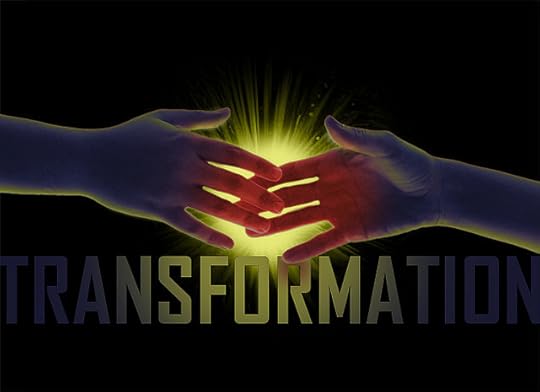
Photo Credit: Transformation by Inky Squid uploaded from Flickr by Kathy
Solitary. Painful. Awkward. Exhilarating. Fulfilling. Frustrating. Sweaty. Mind-boggling. Life-affirming. Grueling. Scary. Empowering, Healing, Transformational…
I figure I have an unwritten contract with my potential reader to give voice to my own life experiences in a way that will engage, entertain, inspire, educate and to help them connect with their own life experiences.
Here are my life lessons through my life experiences. Come with me and I’ll show you how I survived and grew. Maybe you can too.
How do I engage with my reader through memoir?
Sharing stories through memoir can lead to connections. Although writing is a very solitary activity, we can touch so many others through our stories. If the reader can see their own story through your story, their eyes can be opened to a new experience.
The question I ask myself is “Can I strike a universal theme in my own unique way?”
When the memoirist transports the reader into a story through dialogue, sensory details, and scenes and then reflects on the meaning of the event, the reader can be a part of the story.
Here’s an excerpt from Sacred Ground, a story about my nursing career:
The dimly-lit lamp cast a shadow of itself as I approach my silent patient who had curled up in a fetal position, facing the stark white wall. The sadness is palpable. This thirty-five year-old man is dying of colon cancer.
I hesitate at the door, pondering how a young man, five years older than I can be dying, his scared wife immersed in her own grief in the waiting room. What in the world can I say or do beyond my routine nursing duties? It’s easy take a blood pressure or administer a medication, but this young man is dying and I am his nurse.
As I slowly walk to his bedside, I hear his slow, rhythmic breathing. His dinner tray is untouched, the metal dish cover still in place over the plate.
“Mr. Jacobs, I’ll be your nurse this evening. My name is Kathy.” I lean in and gently touch his arm.
Slowly nodding, he opens his eyes and turns to me. Such sad, dark eyes. His thick black hair is plastered against his moist forehead and I see the yellow tone of his skin, a sign that the cancer has spread to his liver. He must have been a very handsome man in his healthy days, I think as I try to grasp the reality before me.
“Is there anything you need right now?” My own words echo a hollowness that underscores the deep sadness I am feeling.
How is a memoir transformational?

Photo Credit: Butterfly uploaded from Flickr by Kathy
I have found healing by facing painful realizations about my past regrets, missteps and foolhardy choices and this has lead to self-forgiveness.
Lisa Dale Norton (http://lisadalenorton.com/) in her book, Shimmering Images: A Handy Little Guide to Writing Memoir, (http://www.amazon.com/Shimmering-Images-Little-Writing-Memoir/dp/0312382928) says, “You must voice your own stories to get beyond them.” (p.15) h
When you have to shape your life story into a narrative arc with a beginning, middle and end, you the writer begin to make connections about the meaning of these events.
Writing a memoir has helped me to find my truths and to stand firmly in them. http://krpooler.com/2011/06/10/standing-in-my-truth-through-self-forgiveness/
By sharing my story in an engaging way, my reader and I become linked.
Memoir writing has a transformative potential when the reader sees her own story reflected in the experience of others. Both writer and reader are changed. http://www.thirdspace.ca/journal/article/viewArticle/hammerwold/138
I want to experience the transformative power of memoir writing. Where do I start?
You’ve probably heard the saying “Memoir writing is not for sissies.” It’s true. Memoir writing is hard work and requires every ounce of discipline, courage and persistence you can muster.
If you decide you have a story to tell and it will be in the form of a memoir then here’s my best advice:
Study the art and craft of writing memoir. Find a mentor. Join a critique group. Journal. Take deep breaths. Exercise. Cry. Laugh. Reach out. Pray/Meditate.
Above all, believe deep in your core that you have a story to tell and only you can tell it.
Then write your heart out. Daily. On a schedule.
Be transformed and transform your readers.
My website, Memoir Writer’s Journey is dedicated to memoir writing. Stop by and join in the conversation and check out the Memoir Resources tab.
Have you experienced transformation in writing or reading a memoir? How has a memoir changed you?
Kathleen Pooler’s Bio:
Kathleen Pooler is a writer and a recently retired Family Nurse Practitioner who is working on a memoir about how the power of hope through her faith in God has helped her to transform, heal and transcend life’s obstacles and disappointments: divorce, single parenting, loving and letting go of an alcoholic son, cancer and heart failure to live a life of joy and contentment. She believes that hope matters and that we are all strengthened and enlightened when we share our stories.
This post is Copyright Kathy Pooler 2012. All rights reserved. You may not reproduce it in any form, without her prior permission.
Filed under: Inspiration, Journalling, Resources, Writing Tagged: author, creativity, discovery, goals, ideas, inspiration, Kathy Pooler, memoir, resource, transformation, Twitter, writer, writing








July 12, 2012
Get it Out of Your System!

I doubt there is anyone over the age of twelve who doesn’t know what stress is! Since the early eighties, stress management has been a hot topic, especially as high or constant levels of stress have been linked to life threatening illnesses such as high blood pressure, heart attacks and strokes. Kids are stressed about problems at home and with their friends, and pressure to perform at school and sports. As for adults, there is so much to be stressed about, where do you even start?
In May 1999, an Australian Newspoll study of the major sources of stress for women listed the highest ranking worry as being financial pressure (56%). After that, the stressors were worrying about children’s future (55%), finding time for yourself (51%), juggling family and work (46%), knowing what you want (39%), health (33%), the relationship with your partner (25%) and lastly, retirement (15%). I wouldn’t list mine in that same order, however financial stress certainly does belong in first place! Many books have been written suggesting a whole host of remedies for stress, from exercise and meditation, to St. Johns Wort and deep breathing. All have benefits if you have the discipline to practice them regularly.

Copyright Sam Mugraby www.photos8.com
Another method which is cheap, portable and very easy is journaling. Journaling doesn’t mean writing a diary of daily events, rather it is writing down your thoughts and feelings in a private notebook. This allows you to get it all out of your system, and to gain a new perspective on what has happened. I’m not disciplined enough to write every day, as some recommend, however I’ve found that writing out what I am thinking and feeling when I am stressed or upset, helps me a great deal.
University medical studies have discovered that people with long-term illnesses that are a constant battle, such as asthma or arthritis, can improve their health if they journal out their stressful feelings. In one study, asthma patients experienced a 19% increase in lung function, over a period of four months. Getting it out of your system by writing freely seems to be an excellent tool for dealing with the annoying, and demanding situations we face every day. James Pennebaker from the University of Texas has said that writing about your emotions can not only prevent illness, but can also dissipate anger, ease depression and help you to solve problems. New insights into yours or other’s behaviour can come to you, or maybe ideas and dreams that you haven’t thought about for a long time. If you are prepared to make the decision to stop fretting over an incident or hurt once you have put it on paper, journaling can be an effective tool in letting go of painful emotions, rather than letting them build up and harm you further. Journaling is a form of mental detoxification, and can be as good for you as a balanced diet and exercise!
So what do you write? Firstly, get yourself a practical or decorative notebook and pen which you will enjoy writing with. Make sure you have time, even if it is only ten minutes, and some space to write undisturbed and away from prying questions. A suitable hiding place for your journal is also a good idea. Don’t make a big thing of guarding it or warning others away, just put it away where you know it won’t be read. This is your emotional outlet, only to be shared if you choose, and choose carefully! They key is to just start writing. Forget grammar and punctuation, they are not relevant or necessary here. Just write about what has happened, how you feel, the person you are or would like to be. Write about your dreams and goals, your hopes and how you see the world.
Don’t throw out what you have written on “black” days either. You may want, or need to go back and read those entries later as encouragement that you can get through, or to look back on lessons you have learned or strengths that you have gained. Old entries can also help you to use those experiences in guiding you in making better decisions, or choosing an alternative course of action later.
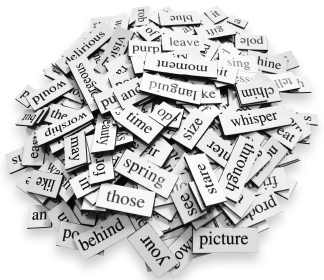 Don’t just keep a journal as a dumping place for your stresses or traumas though, or you will never want to pick it up and write in it. Use it for inspiration! Write down poetry, song lyrics that mean something to you. Include photos, memorabilia, record your achievements and the good things that happen also. You may want to also use your journal as a gratitude journal. Write down five things every day that you are grateful for. That will soon lift your spirits. Write down the joys of life, not just the heartaches, and even if you do have a bad day you want to put on paper, try to round it off with a positive point at the end. Journaling can not only improve your health, by using it this way, it can also improve your whole life perspective.
Don’t just keep a journal as a dumping place for your stresses or traumas though, or you will never want to pick it up and write in it. Use it for inspiration! Write down poetry, song lyrics that mean something to you. Include photos, memorabilia, record your achievements and the good things that happen also. You may want to also use your journal as a gratitude journal. Write down five things every day that you are grateful for. That will soon lift your spirits. Write down the joys of life, not just the heartaches, and even if you do have a bad day you want to put on paper, try to round it off with a positive point at the end. Journaling can not only improve your health, by using it this way, it can also improve your whole life perspective.
If you would like to write a journal or an autobiography, the Write Your Life Story E-Course will give you a structure for what you want to write; many ideas to get you started and enthusiastic; and an understanding of new techniques to bring back memories and write a vibrant story.
By the end of the course you will have:
• Constructed a time line of your life’s events as a starting point for writing;
• Chosen a title;
• Planned what resources you need such as cost and research;
• Used memory trigger techniques and mind mapping;
• Decided which parts of your life you do and don’t want to write about;
• Knowledge about which biography writing pitfalls to avoid;
• Used basic fiction writing techniques to add colour and depth to your work;
• Have a list of resources for inspiration and further information;
• Organised your work so nothing is lost.
If you would like a sample of what the E-course is like, please visit this link: http://www.virtual-desk.com.au/WYLS%20eCourse%20Week%201.pdf Currently, the course is only available directly from Cate. To order, visit http://www.virtual-desk.com.au/trainer.html The courses will be sent to you by email within 48 hours of your payment being received. They are virus and malware free, DRM free pdf files.
Tutoring services cover a year from the date payment is received. It does not include manuscript editing services, promotion, recommendations to publishers, writing query letters, technical formatting of a manuscript or any aspect of the publishing process. It includes feedback on your writing and course exercises; discussion of the course material, approaches you can take in your work and technical assistance on any aspect of the course.
Join Our Facebook Community
 You are also most welcome to become a part of the Write Your Life Story Facebook Community. It’s aim is to inspire you to write and improve as a writer, by regularly sharing resources and helpful ‘how-to’ posts on Facebook. The page address is: http://www.facebook.com/pages/Write-Your-Life-Story/173393852705651?sk=app_190322544333196
You are also most welcome to become a part of the Write Your Life Story Facebook Community. It’s aim is to inspire you to write and improve as a writer, by regularly sharing resources and helpful ‘how-to’ posts on Facebook. The page address is: http://www.facebook.com/pages/Write-Your-Life-Story/173393852705651?sk=app_190322544333196
If you have any questions, please don’t hesitate to contact me.
**The photo of the girl reading on the beach above is the copyrighted work of Sam Mugraby. (Photos8.com) The quill and magnetic word pile photos in this post are paid for and licenced to me. They are Copywritten. You may not save it or use them for your own purposes. You can purchase them from iStockphoto.com
This article is Copyright Cate Russell-Cole 2012. All rights reserved. It may not be reproduced in any medium, in print or digital format. I regularly search for my articles and have found where they have been used without permission. Action will be taken against offenders.
Filed under: Creativity, Food For Thought, Inspiration, Journalling, Resources, Writer's Recovery Community Post, Writing Tagged: autobiography, biography, brain, challenge, creativity, inspiration, journal, journaling, learning, mind, stress, stress management, writer, writing












